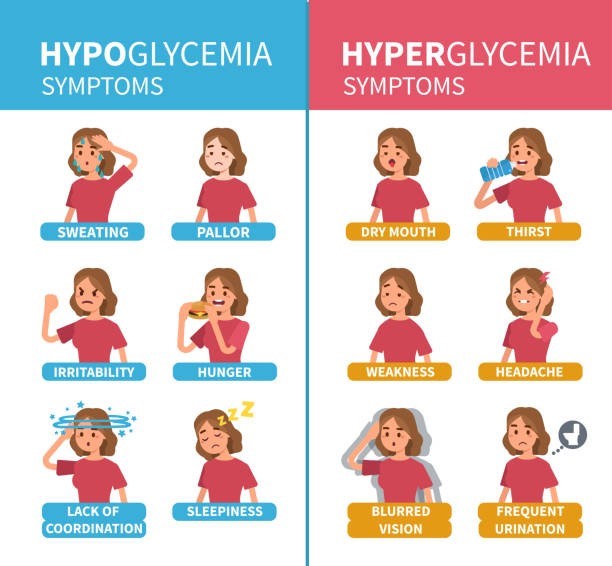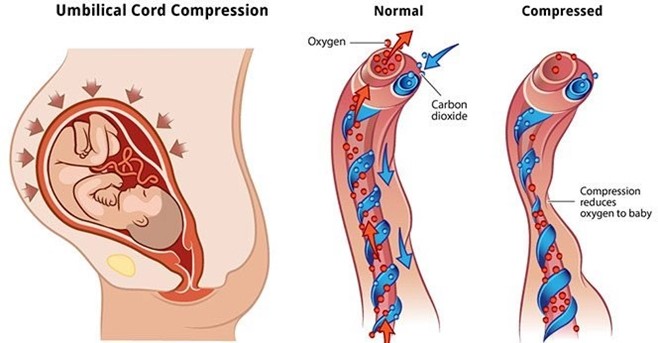The nurse assesses a newborn at 36 weeks' gestation, and the following behaviors are noted: nasal flaring, labored breathing, and excessive mucus. The nurse is most concerned about:
Select one:
Possible Meconium Aspiration Syndrome (MAS).
Possible polycythemia.
Possible Transient Tachypnea of the Newborn (TTN).
Possible Respiratory Distress Syndrome (RDS).
The Correct Answer is D
Choice A Reason: Possible Meconium Aspiration Syndrome (MAS). This is an unlikely condition for this newborn, as MAS occurs when fetal stool (meconium) enters into the lungs before or during birth, causing airway obstruction, inflammation, and infection. MAS usually affects term or post-term infants who experience fetal distress or hypoxia in utero.
Choice B Reason: Possible polycythemia. This is an unrelated condition for this newborn, as polycythemia refers to an abnormally high number of red blood cells in the blood, which can increase blood viscosity and impair circulation.
Polycythemia may occur in infants who have delayed cord clamping, intrauterine growth restriction, maternal diabetes, or high altitude exposure.
Choice C Reason: Possible Transient Tachypnea of the Newborn (TTN). This is a less serious condition than RDS, as TTN is a mild respiratory problem that results from delayed clearance of fetal lung fluid after birth. TTN causes rapid breathing, nasal flaring, grunting, and mild cyanosis. It usually resolves within 24 to 48 hours after birth.
Choice D Reason: Possible Respiratory Distress Syndrome (RDS). This is a serious condition that requires immediate intervention and treatment, as RDS can lead to life-threatening complications such as pulmonary hemorrhage, pneumothorax, or bronchopulmonary dysplasia. RDS causes respiratory distress, nasal flaring, retractions, grunting, and central cyanosis. It usually occurs within minutes to hours after birth.
Nursing Test Bank
Naxlex Comprehensive Predictor Exams
Related Questions
Correct Answer is A
Explanation
Choice A Reason: Episodes of hypoglycemia and hyperglycemia. This is because episodes of hypoglycemia and hyperglycemia are common complications of diabetes during pregnancy, which can affect both the mother and the fetus. Hypoglycemia is a condition where the blood glucose level drops below the normal range, which can cause symptoms such as sweating, trembling, hunger, confusion, or loss of consciousness. Hyperglycemia is a condition where the blood glucose level rises above the normal range, which can cause symptoms such as thirst, polyuria, fatigue, blurred vision, or ketoacidosis. Diabetes during pregnancy requires careful monitoring and management of blood glucose levels to prevent adverse outcomes such as fetal macrosomia, congenital anomalies, stillbirth, or neonatal hypoglycemia.
Choice B Reason: Postpartum hemorrhage. This is an incorrect answer that refers to a different complication that may occur after delivery, not during pregnancy. Postpartum hemorrhage is excessive bleeding from the uterus or genital tract after delivery, which can cause hypovolemic shock, anemia, or death. Postpartum hemorrhage can be caused by uterine atony, retained placenta, lacerations, or coagulation disorders.
Choice C Reason: Cerebrovascular accident (CVA). This is an incorrect answer that indicates a rare and severe complication that may occur during or after pregnancy, not specifically related to diabetes. CVA is also known as stroke, which is an interruption of blood flow to the brain due to ischemia or hemorrhage, which can cause neurological deficits or death. CVA can be caused by hypertension, preeclampsia-eclampsia, thrombophilia, or vascular malformations.
Choice D Reason: Acute vasospasm. This is an incorrect answer that suggests a different condition that may occur during pregnancy, not associated with diabetes. Acute vasospasm is also known as Raynaud's phenomenon, which is a disorder of blood vessels that causes them to narrow and reduce blood flow to the extremities in response to cold or stress, which can cause pain, numbness, or color changes. Acute vasospasm can be triggered by smoking, medications, or autoimmune diseases.

Correct Answer is C
Explanation
Choice A Reason: Late decelerations. This is an incorrect answer that refers to a different type of fetal heart rate patern that indicates uteroplacental insufficiency, which can reduce blood flow and oxygen delivery to the fetus. Late decelerations are characterized by gradual decreases in fetal heart rate that begin after the peak of uterine contractions and return to baseline after the end of contractions. Amnioinfusion is not effective for late decelerations, as it does not address the underlying cause of uteroplacental insufficiency, which may be due to maternal hypertension, diabetes, preeclampsia, or placental abruption.
Choice B Reason: Moderate decelerations. This is an incorrect answer that refers to a non-existent type of fetal heart rate patern, as there is no such term as moderate decelerations. The term moderate refers to the category of fetal heart rate variability, which is a measure of the fluctuations in fetal heart rate around the baseline. Moderate variability indicates normal fetal oxygenation and well-being, while absent or minimal variability indicates fetal hypoxia or distress.
Choice C Reason: Variable decelerations. This is because variable decelerations are a type of fetal heart rate patern that indicates cord compression, which can reduce blood flow and oxygen delivery to the fetus. Variable decelerations are characterized by abrupt decreases in fetal heart rate that vary in onset, depth, and duration, and do not have a consistent relationship with uterine contractions. Amnioinfusion is a procedure that involves infusing saline or lactated Ringer's solution into the amniotic cavity through a transcervical catheter, which can relieve cord compression by increasing the volume of amniotic fluid and cushioning the cord. Amnioinfusion can improve fetal oxygenation and reduce variable decelerations.
Choice D Reason: Early decelerations. This is an incorrect answer that refers to a different type of fetal heart rate patern that indicates head compression, which can stimulate the vagus nerve and slow down the fetal heart rate. Early decelerations are characterized by gradual decreases in fetal heart rate that begin with the onset of uterine contractions and return to baseline with the end of contractions. Early decelerations are benign and do not require intervention, as they reflect normal fetal head descent and progress of labor. Amnioinfusion is not indicated for early decelerations, as it does not affect head compression or vagal stimulation.

Whether you are a student looking to ace your exams or a practicing nurse seeking to enhance your expertise , our nursing education contents will empower you with the confidence and competence to make a difference in the lives of patients and become a respected leader in the healthcare field.
Visit Naxlex, invest in your future and unlock endless possibilities with our unparalleled nursing education contents today
Report Wrong Answer on the Current Question
Do you disagree with the answer? If yes, what is your expected answer? Explain.
Kindly be descriptive with the issue you are facing.
